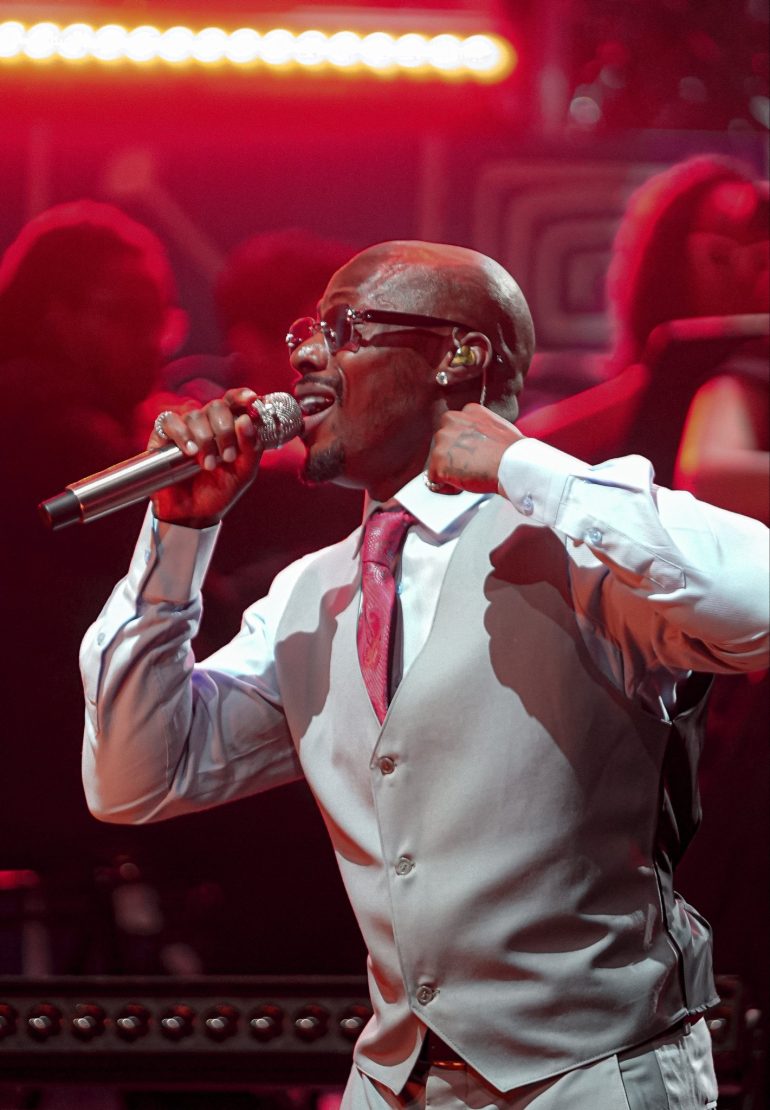A Historic Night in Brooklyn
Asake took Brooklyn by storm on November 8 as he became the face of a rare collision between Afrobeats and the grand tradition of symphonic music. The one night Red Bull Symphonic event at the landmark Kings Theatre in Brooklyn was billed as a one night only affair and it delivered on that promise with a show that felt equal parts celebration and statement.
A Cinematic Opening
From the moment the lights dimmed, the crowd understood they were not watching a standard Afrobeats set. Conductor Glenn Alexander II led a full symphonic ensemble that reimagined Asake songs with sweeping string arrangements, brass flourishes and cinematic swells. Familiar hits were given fresh contours as the orchestra underscored percussive grooves and call and response vocals instead of flattening them. The result was a creative translation rather than a cover.
A Milestone for Afrobeats on the Global Stage
This was also a symbolic moment for Afrobeats on the global stage. Coverage and commentary across outlets highlighted that Asake is the first African artist to headline the Brooklyn edition of Red Bull Symphonic, an honour that frames the night as both a milestone and an invitation to imagine Afrobeats beyond typical festival or club contexts. The program did not simply place strings behind a catalogue. It treated Asake and his band as equal partners in an arrangement that respected swing and syncopation while giving them new harmonic depth.
The setlist balanced crowd favorites with moments of real reimagination. Songs like Lonely at the Top, joha and Terminator took on a new complexity under orchestral sway. At times intimate, at times cinematic, the band and orchestra found a language that allowed the audience to hear the songs anew. Asake also used the stage to tease music from his forthcoming project which added an extra sense of occasion for fans who came to hear both catalogue hits and what might be next. Social clips from the night show the orchestra and band moving in tight lockstep as the crowd sang along to reworked hooks.
Surprise Appearances
Part of what made the night feel historic were the surprise appearances. Throughout the evening Asake welcomed a string of international guests such as Wizkid, Tiakola, Gunna and Central Cee who reinforced the idea that Afrobeats now operates in a multinational, genre crossing ecosystem. Collaborators and friends stepped out to join him onstage for collaborative moments that spliced rap, R and B and international flare into the orchestral textures. Footage and eyewitness accounts identify appearances that included global stars who amplified the already electric atmosphere.
The Kings Theatre itself added to the theater of the evening. Built as a movie palace and restored to preserve its decorative grandeur the venue made an ideal home for a show that traded on both spectacle and nuance. The invited crowd as well as the artists reflected that mix with many attendees choosing formal attire in keeping with the event tone. Red Bull framed the show as a meeting between Lagos energy and Brooklyn grandeur and the visual details onstage matched that brief.
Reaction to the show suggested it landed the way it intended. Local critics and music writers described the night as a move beyond novelty into a serious rethinking of how contemporary African music can be presented in alternative formats. A never-before-seen version of Asake which reflected his evolution and intention in his craftsmanship. Fans on social media captured moments of choreography between conductor, orchestra and band and praised the entire performance. Some commentators also used the event to argue that these kinds of premium live experiences should increasingly happen in African cities as well as Western capitals.
A Fusion That Respected Rhythm
What made the evening feel especially encouraging was how the orchestral arrangements amplified rather than smoothed out the essential rhythms and vocal cadences that define Asake, he was moving on a whole new different wavelength. The conductor and arrangers in sync, treated rhythm as a structural element to be enhanced with orchestral color and not a problem to be translated away.
In the end the Red Bull Symphonic night with Asake felt like a cultural proof of concept. It showed that orchestral collaboration can elevate Afrobeats without erasing its heartbeat but by harnessing its elements. For Asake it was a high-profile page in a rapidly expanding global narrative. For listeners and industry watchers the show pointed to new possibilities for how African pop can be showcased, curated and celebrated on stages that have historically lived in different musical worlds. If one thing stood out it was how comfortably Afrobeats and symphonic textures sat together when approached with well thought creativity and respect.


